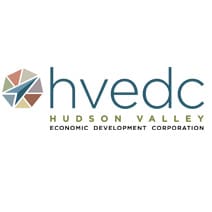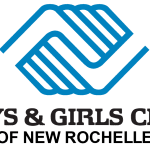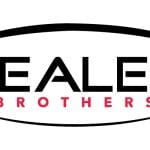More than 500 from the region’s craft beverage industry attend educational event
GOSHEN, N.Y. (Oct. 13, 2017) – Hundreds of local craft business owners, many of whom returned for a fifth year, came to the Marriott Pavilion at The Culinary Institute of America (CIA) for the fifth annual Hudson Valley Beer Wine, Spirits & Cider Summit yesterday.
Created by the Hudson Valley Economic Development Corp. (HVEDC), the Summit is the Hudson Valley’s premier educational forum and networking opportunity for alcoholic beverage industry professionals, and features innovative programming and tastings. Topics discussed included the growth of the craft beverage industry in the Hudson Valley, how to break into the industry and what successful businesses do in the industry. More than 500 people registered for the event.
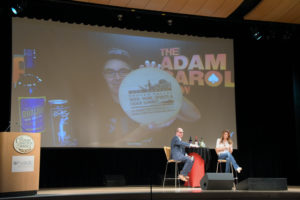
“This is the fifth anniversary of the Beer, Wine, Spirits and Cider Summit, and we could not be prouder to see the growth of so many businesses we’ve seen start and expand since the launch of this important initiative,” said Laurence P. Gottlieb, president and CEO of HVEDC. “HVEDC is honored to be making connections and serving the needs of people in the craft beverage industry. This is what true, grassroots economic development is all about.”
Gottlieb told the crowd that the number of craft beverage producers in the state has grown to more than 300 this year, up dramatically from 85 in 2012. “These entrepreneurs have created anchor businesses that are revitalizing many local economies and spawning related ventures in a variety of areas — manufacturing, marketing, tourism, agriculture, etc.” he said.
The event has been very successful with craft beverage industry participants throughout the Hudson Valley the past five years. Last year, HVEDC’s Hudson Valley Beer, Wine, Spirits & Cider Summit won a Bronze award in the category of Entrepreneurship for excellence in economic development, given by the International Economic Development Council (IEDC).
Keynote speaker Tom Potter, co-founder and president of New York Distilling Company and co-founder of Brooklyn Brewery in 1987, said that after years of growth in the beer industry, the last couple of years have seen a slow-down. This represents a maturing industry and not necessarily diminishing opportunity.
He told the audience there is no perfect time to get into the craft industry. Potter said when he was starting up Brooklyn Brewery, his founding group’s biggest concern was whether there was enough room in the New York State market for four craft breweries. He admitted, with hindsight, it was a silly question, but at the time it was a serious, legitimate concern. Times have changed.
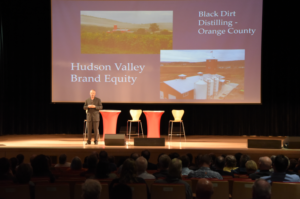
“There’s never a great time,” Potter said of getting into the business. “But there’s never a bad time either. There’s only you.” He urged the audience to do two things if they plan to get into the industry.
First, determine a plan. One of the facets of the plan needs to be marketing; communicating what makes your business unique. “If you have something unique, you’re doing yourself a disservice if you don’t connect with others,” he said. Second, connect regularly with other people in the industry to learn, grow and evolve as the industry changes.
“What’s your motivation?” he asked them. “What do you hope for? I’m very optimistic, collectively, about our segment. If you’re engaged, I like your chances.” Potter then discussed his partnership with Black Dirt Distillery in Orange County, and his desire to explore expansion opportunities in the Hudson Valley.
Gottlieb also conducted a unique “one-on-two” interview with the power couple behind Carolla Drinks, producers of Mangria and other adult beverages. Lynette Carolla, the company’s CEO, joined Gottlieb live at the event while popular comedian, television and podcast host and founder of Carolla Drinks, Adam Carolla, joined the conversation from his state-of-the-art digital studio in California via video remote. They discussed how they got into the craft beverage business and the mechanics of the process of operating it, among other topics.
Adam Carolla explained they got into the business when he was performing comedy in clubs night after night. The commonality was there was alcohol at the tables. “It makes sense for a tennis player to come out with a brand of rackets and it makes sense for comedians to have their own brand of liquor,” he said.
He had had a discussion with his wife that their income would need to come from multiple sources, so venturing into the craft business made sense, he said.
“This started organically when he (Adam) talked about it on one of his podcasts where he said he’d like to make himself a ‘mangria,’ a little cocktail, and the next thing you knew Napa (Valley) came calling,” Lynette Carolla said.
Additionally, breakout panel discussions with beverage industry-specific and regional business experts were part of the event again this year.
The “Update on Everything Craft – New York State Roundtable,” was led by Vincent Bradley, Chairman, New York State Liquor Authority. The interactive discussion with New York State liquor, agriculture and Taste NY officials and representatives, brought participants up to date on key changes with state laws, rules, regulations and grant programs. Topics included how One Stop Shop works for businesses; and introduction to new regulations and laws pertaining to craft beverage licensing, tastings and sales; and the state’s role in growing the craft beverage business.
Panelists focused on how changes in legislation and the involvement of Gov. Cuomo’s administration have led to phenomenal industry growth by helping reduce red tape in securing licenses and creating the current positive environment for entrepreneurial success in the industry. There are currently more than 150 craft beverage manufacturers located in the Hudson Valley: 52 craft breweries; 26 craft distilleries; 56 wineries and farm wineries; four hard cideries and 12 farm cideries.
“The governor has an extreme interest in this industry, for obvious reasons: It creates jobs, it increases tourism, and it makes good economic sense because it goes hand in hand with the department of agriculture,” said Bradley.
The “Quenching Your Thirst for Business Knowledge” panel session was moderated by Brian Powers, vice president of Marketing and Business Development for Judelson, Giordano & Siegel CPA PC. The panel showed the business operational aspects of a business within the craft beverage sector. The panel covered topics such as getting a product into a restaurant or bar, how to sell a product, building relationships, selling your brand, telling your story, marketing a business and understanding how to work with the Internal Revenue Service.
Dr. Russell Zwanka, professor of Food Marketing at SUNY New Paltz and CEO and partner at Triple Eight Marketing, returned this year to share his insights for navigating the craft beverage marketplace. In his presentation, “Spirited Success: Building Your Roadmap,” Zwanka outlined intelligence and strategies for building a brand and its sales. His tips and tactics for entrepreneurs were based in the idea of knowing where the market is, to know where you want to go, and included understanding economic and generational trends. He encouraged entrepreneurs to “tell their story” and drew from the successes of local businesses to illustrate the advantages that craft makers have: local connections; a focus on quality throughout their process; and perceived trustworthiness. Providing actionable steps, Zwanka helped prepare craft beverage makers to grow from grassroots campaigning to establishing the reseller relationships that can lead to the holy grail of craft beverage retail – passive income.
Visitors concluded the day at the Thirst & Vine tasting area with more than 15 regional craft beverage samplers.
The Summit was sponsored by Hudson Valley Economic Development Network; The Culinary Institute of America; Taste NY; Hospitality Resource Group, Inc.; Think Dutchess; Carolla Drinks; New York Distilling Company; Corrigan, Baker & Levine LLC; Judelson, Giordano & Siegel, CPA, PC; Heineken; Lakeland Bank; Orange & Rockland Utilities; Con Edison; Breakthru Beverage Group; Original Energy; Hudson Valley Magazine; Pamal Broadcasting Ltd.; and TownSquare Media.
About Hudson Valley Economic Development Corporation (HVEDC): HVEDC is the leading economic development agency for the seven-county region of Westchester, Putnam, Dutchess, Rockland, Orange, Ulster, and Sullivan counties. The public-private partnership markets the region as a prime business location to corporate executives, site selection consultants, and real estate brokers. HVEDC helped start the organizational, branding, and promotional effort for NY BioHud Valley, Hudson Valley Food & Beverage Alliance, Hudson Valley 3D Printing, Hudson Valley EDs & MEDs and Hudson Valley PLAY. To learn more, call 845-220-2244 or visit hvedc.com.
About The Culinary Institute of America (CIA): Founded in 1946, The Culinary Institute of America is the world’s premier culinary college. Dedicated to driving leadership development for the foodservice and hospitality industry, the independent, not-for-profit CIA offers associate degrees in culinary arts and baking and pastry arts; bachelor’s degree majors in management, culinary science, and applied food studies; and executive education through its Food Business School. Its conferences and consulting services have made the CIA the think tank of the food industry in the areas of health & wellness, sustainability, world cuisines & cultures, and professional excellence & innovation. The college also offers certificate programs and courses for professionals and enthusiasts. Its worldwide network of 48,000 alumni includes leaders in every area of foodservice and hospitality. The CIA has campuses in New York, California, Texas, and Singapore. For more information, visit ciachef.edu.
